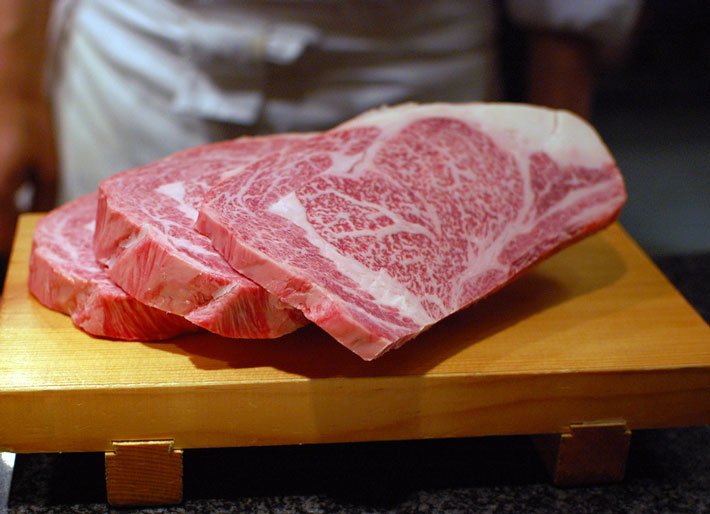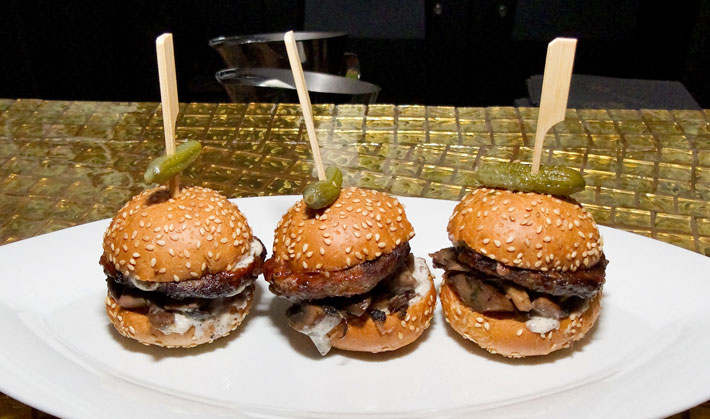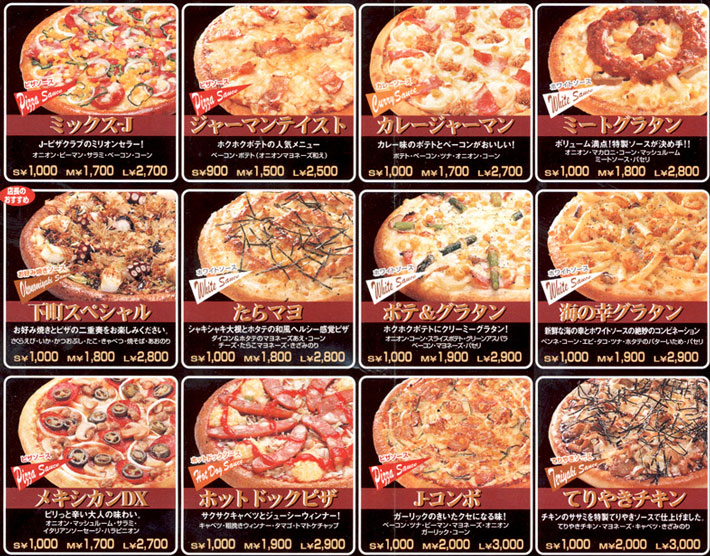One of Japan’s biggest culinary exports is Kobe beef, a high-end meat from purebred cows. Its quality is the stuff of legend. People say that the cows are massaged, played classical music, fed booze, and pampered in every way a cow possibly could be.
Kobe beef has taken off outside of Japan in recent years. You can now find Kobe beef in restaurants all over the US, everything from Kobe beef steaks to Kobe beef sliders.
At least, that’s the misconception.
A Forbes exposé recently blew the lid off what it calls “food’s biggest scam.” The author says that if you’ve eaten Kobe beef outside of Japan, chances are you’ve been lied to and ripped off.
Is this really the case? How could Kobe beef be such blatant fraud?
What Is Kobe Beef?
In Japan, Kobe beef is a very tightly controlled and regulated copyright. Only beef that meets a certain set of very strict standards can be labelled as Kobe beef.
Kobe beef only comes from the Hyogo prefecture, and is named after Hyogo’s capital city, Kobe. While the cows from which Kobe beef comes from aren’t actually given the royal treatment of massages and watery Japanese beers, they’re still very particular about their cows.

The beef comes from cows of a very specific breed and distinct lineage. You can trace back the family of a Kobe beef cow for generations and generations. You’ll even be able to tell exactly which cow your meat came from; it’s all given Portlandia levels of care and attention.
Most importantly, the real, genuine article is served basically only in Japan. Since Kobe beef is so tightly regulated, it’s generally not allowed to be exported anywhere outside of Japan. (The only exception is Macau.)
In fact, since 2010 there haven’t been any beef exported from Japan to the U.S.. That raises the question: if Kobe beef can’t be exported out of Japan, then how are there so many Kobe beef dishes served abroad?
Fake Kobe Beef
Despite tough regulation in Japan, there’s nothing that legally prevents people outside of Japan from calling their meat “Kobe beef,” even if it’s not the real McCoy.

When you see Kobe beef products offered outside of Japan, there’s no chance that it’s the same beef that undergoes such strenuous cultivation. Regardless, it’s still probably high quality beef.
Does It Really Matter?
The author of the Forbes article objects to foreign beef being labelled “Kobe” beef because he thinks that it’s misleading. He thinks that others are riding on the reputation of actual Kobe beef.
To me, this complaint seems kind of pedantic. It makes me think of people who say that champagne can only come from the Champagne region of France. That might technically be true, but that doesn’t mean you can’t enjoy sparkling wine that’s incorrectly labelled “champagne.”
Does it really matter if the beef you’re eating isn’t 100% authentic Kobe beef? Most people probably can’t even tell the difference!
Kobe beef isn’t the only Japanese food that’s been altered in U.S. kitchens. Really, all bets were off when people started using cream cheese in sushi.
Japan doesn’t have its hands clean either. I’d be lying to you if I said all Japanese interpretations of foreign food is faithful to its origins. Just look at Japanese pizza and you’ll get what I’m saying.

It seems to me that most foods are only approximations of the authentic, genuine article. And you know what? That’s probably okay. As long as you enjoy the food, who cares if it’s prepared the “right” way?
So is Kobe beef a scam? If you have a very specific set of expectations, then you might be disappointed. But if you’re just looking for some high-quality meat, don’t worry too much about it.
